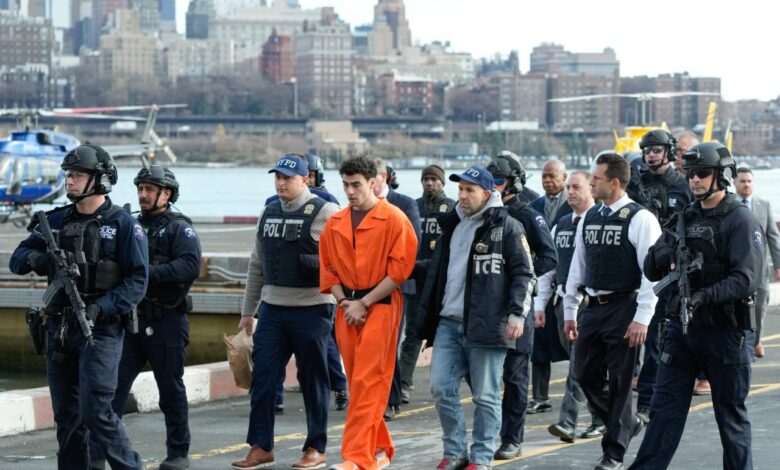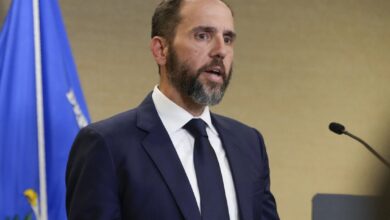Luigi Mangione Extradited to NYC Amid Paparazzi and Protesters in CEO Assassination Case
NEW YORK CITY — Luigi Mangione, the 26-year-old suspect in the assassination of UnitedHealthcare CEO Brian Thompson, was extradited from Pennsylvania to New York City under the heavy gaze of paparazzi and amidst a crowd of protesters.

NEW YORK CITY — Luigi Mangione, the 26-year-old suspect in the assassination of UnitedHealthcare CEO Brian Thompson, was extradited from Pennsylvania to New York City under the heavy gaze of paparazzi and amidst a crowd of protesters.
Mangione’s arrival in New York was anything but ordinary. On Thursday, after his arrest in Altoona, Pennsylvania, for the murder charge, he was transported to Manhattan with Mayor Eric Adams personally escorting him in what was described as a “perp walk” — a highly publicized law enforcement tactic where a suspect is walked past the media. This move by Adams was seen by some as an attempt to demonstrate the city’s firm stance against crime, especially in the wake of his own legal challenges, including an indictment on unrelated federal corruption charges which he denies.
The unusual journey to New York was punctuated by a significant police presence, with Mangione arriving via helicopter, adding to the drama of the event. Paparazzi swarmed the area, capturing every moment, while protesters gathered to voice their opinions. Some supported Mangione, interpreting his actions as a protest against perceived corporate greed and corruption within the healthcare industry, which was allegedly detailed in a manifesto found with him at the time of his arrest. Others condemned the killing and the subsequent media circus, calling for justice and a focus on the lives affected by the crime.
The case has captured national attention not just for the crime itself but for the broader implications it raises about executive responsibility, corporate ethics, and the justice system’s handling of such high-profile cases. Mangione faces federal charges that include murder with a firearm, stalking, and various firearms offenses, some of which could potentially lead to the death penalty, highlighting the severity with which the legal system is approaching this incident.
The atmosphere around Mangione’s extradition has sparked a significant amount of discussion on social media and in public forums, trending under topics related to justice, corporate accountability, and the spectacle of law enforcement actions. Critics of the mayor’s involvement argue that the focus should be on legal proceedings rather than media optics, while supporters see it as a necessary display of taking a stand against crime.
As Mangione’s legal battle unfolds, it remains to be seen how this case will impact perceptions of corporate leadership, the response of law enforcement to crimes against high-profile figures, and the ongoing debate over the appropriateness of capital punishment in such circumstances.
This event underscores the complex interplay between crime, politics, public perception, and the media in modern society.




